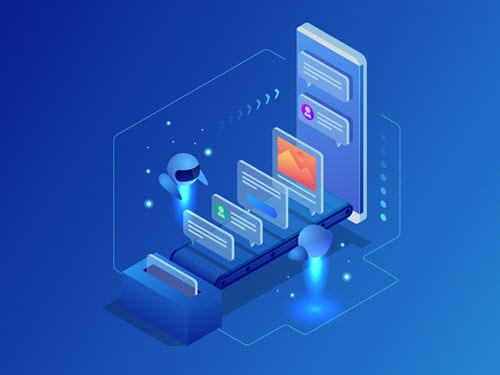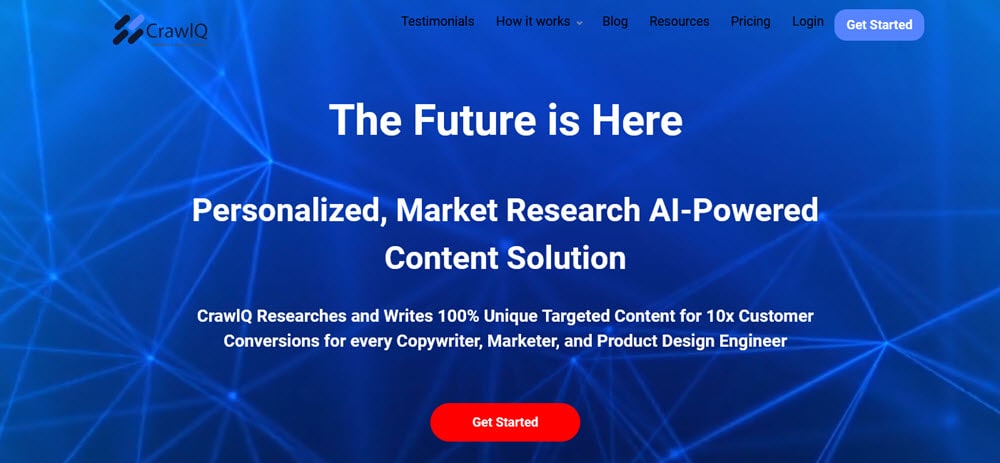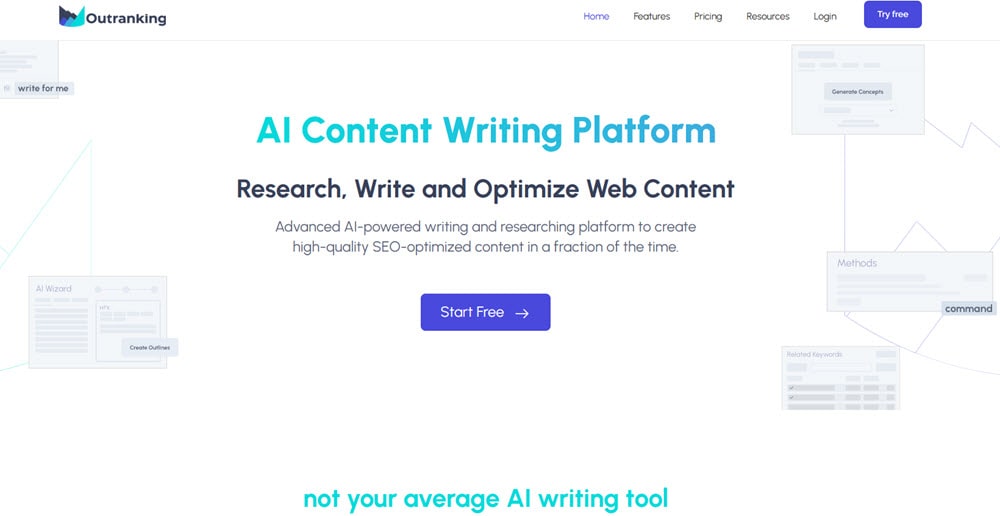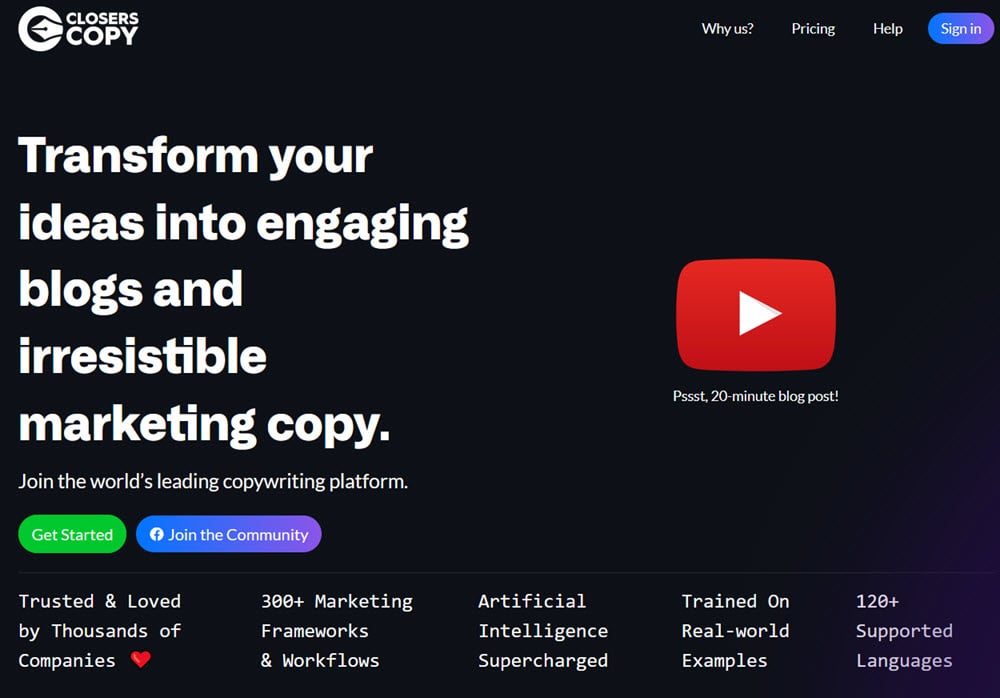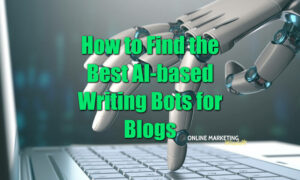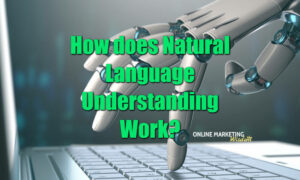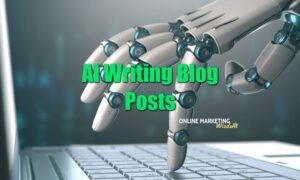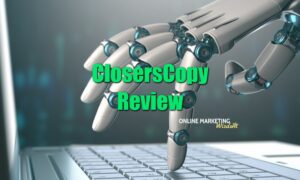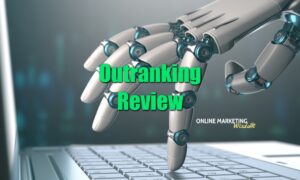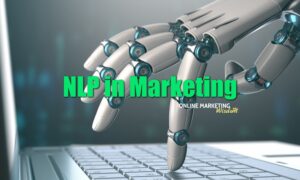How to use NLP in Marketing: 8 Powerful Techniques To Help Boost Your Growth
Natural Language Processing has come a long way over the years.
As a marketer, understanding NLP is crucial in helping you achieve success with your marketing efforts. It’s important to understand the basics of how the technology works, what types of problems it solves for marketers, and how you can put this powerful technology to work for you.
To help you get started, I’ve written a brief article that will give you an overview of natural language processing, why it is helpful for marketers, and how you can use it today.
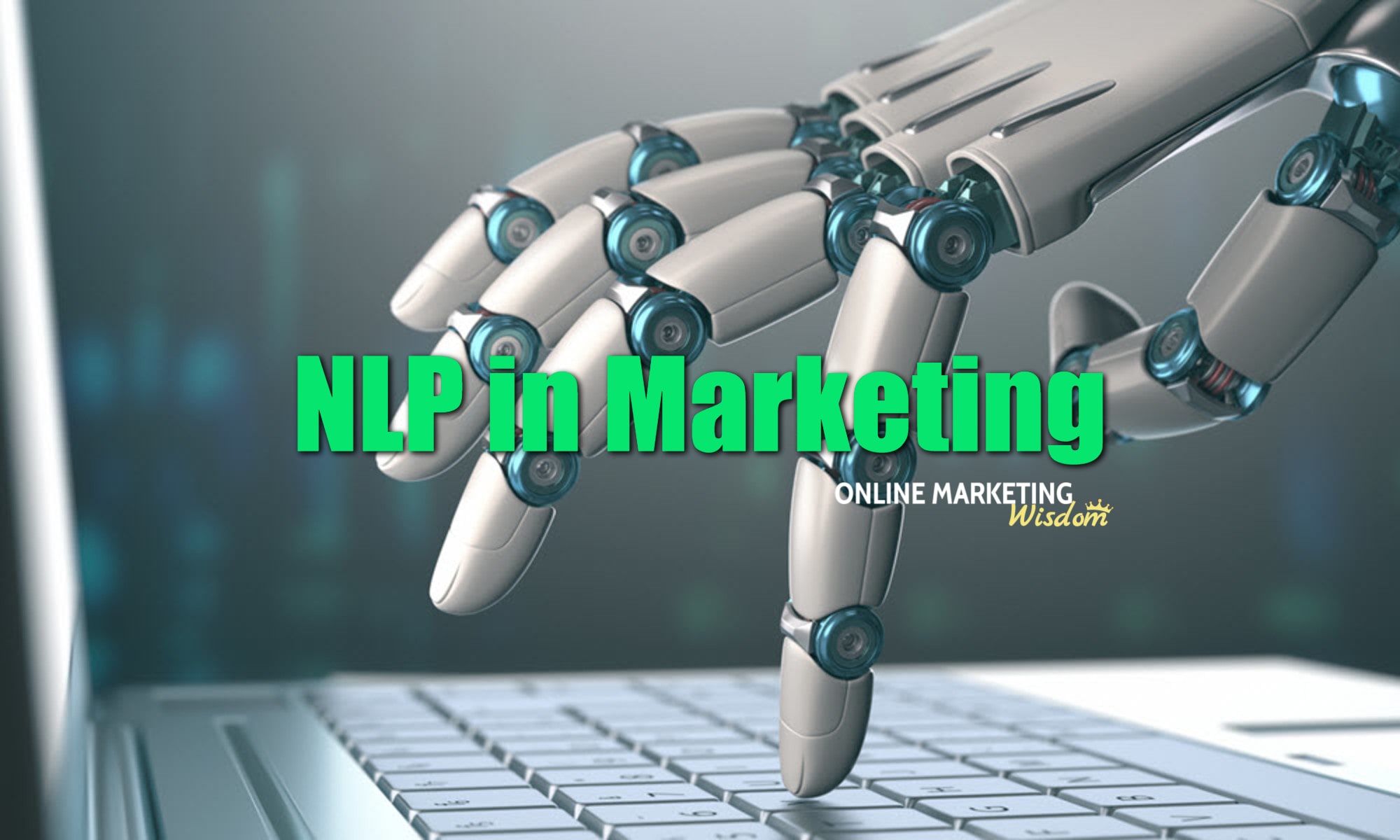
What is Natural Language Processing?
Natural language processing is a subfield of artificial intelligence. It’s a technology that allows computers to analyze human language to extract meaning and actionable data from the language and make predictions about the future based on text.
In other words, NLP helps machines process and understand human language.
Furthermore, when combined with data science and machine learning models (deep learning), NLP allows you to make more accurate predictions about people’s behavior. This enables you to deliver better experiences to your customers and better segment your customer base to create a targeted marketing campaign for each person. But more on that later.
Here’s a brief overview of how NLP works.
How does Natural Language Processing Work?
An NLP algorithm analyzes input data(in written or spoken language) to determine its structure.
Using syntactic analysis, the algorithm identifies the basic parts of the sentence, word, and then letter.
The algorithm also performs semantic analysis to determine the true meaning of the words. This is done through the use of Natural Language Understanding (NLU). NLU takes context into account, so it can determine the meaning of the sentence based on the relationship of words to each other.
The AI builds a model to identify and extract valuable data and actionable insights from the input based on this information.
In short, NLP works by analyzing the input to be understood and acted upon by computer programs.
Benefits of Using NLP in Marketing
Increases Efficiency
Marketers already use the technology to automate repetitive tasks, such as email marketing campaigns. This has resulted in more time being saved for your marketing team to focus on more strategic and creative activities.
With the automation that NLP capabilities bring, you’re free to work on higher-value activities to increase profitability.
Better Data Insights
Using NLP techniques to analyze unstructured data (like social media posts, customer reviews, and even website and blog content) allows you to discover previously unknown data points about your customers.
This gives you a comprehensive picture of your customers, making it much easier for you to craft a more personalized and relevant marketing message. With this data, you can create better-targeted marketing campaigns, deliver better customer experiences, and optimize the performance of your website and all your digital marketing efforts.
Combined with other technologies, like machine learning, NLP empowers marketers to extract deeper insight from the data, making it possible to predict human behavior with unprecedented accuracy. This allows you to deliver relevant, personalized, and profitable customer experiences at a scale never before possible.
Improves Performance
Another benefit of NLP in marketing is that it helps you remove the guesswork from your marketing campaigns.
By using the technology, you no longer need to rely on outdated and inaccurate information about your customers. Instead, with NLP, you have access to an ever-growing repository of verified and accurate data about your customers. This reduces the number of “bad guesses” you make when running a campaign, increasing its effectiveness.
Spots Trends
The ability to quickly identify and understand patterns is one of the key benefits of using NLP.
It enables you to identify emerging markets and consumer trends before your competition. This gives you a significant advantage over your competitors because you can jump on these trends before they become mainstream. You can then use this information to craft more targeted and effective marketing campaigns.
Generate Better ROI on Marketing Campaigns
Marketers often struggle to generate a Return On Investment (ROI) on their marketing campaigns. They put all their efforts into creating a brilliant campaign, but without proper measurement, they have no idea if their campaign was successful or not.
NLP technology makes it easy to measure the performance of your campaigns because it provides you with precise and accurate data about your customers. This data can then identify patterns and generate hypotheses about what will work best for your next campaign. It also offers a comprehensive framework for tracking and analyzing every aspect of your campaign.
With this data, you can quickly identify what worked and what didn’t work so you can adjust your marketing strategy accordingly.
Saves Time
Many marketers struggle to analyze all the data generated by a social media campaign or predictive analytics tool.
They often get overwhelmed with the sheer volume of information, which means they spend a lot of time trying to understand it all. NLP tools make it easy to quickly understand, process, and analyze vast amounts of unstructured data in just minutes.
You no longer need to spend hours or days processing big data.
Scalability
Natural language processing is very scalable. It can be used by any sized company, no matter how large or small their marketing budget is. Together with machine learning, your NLP solution continuously improves with new data.
This makes it possible for even the smallest companies to use this technology to achieve world-class results.
In summary, NLP software is critical for any online business marketing campaign because it increases your efficiency, better data insights, improves your performance, spots trends, generates better ROI on your marketing campaigns, saves time, and is scalable.
NLP is critical for any online business.
8 Examples of Using NLP in Digital Marketing: Applications, Techniques & Tools
As a marketer, your biggest challenge is likely to be finding time to complete repetitive tasks and monitor the effectiveness of your campaigns. Using an NLP application will make your life easier and increase your efficiency.
Here are some ideas for incorporating the technology into your digital marketing strategy.
#1 – Understanding your audience
Understanding your audience, what they care about, how they feel about your offers, and what words and phrases are most effective in capturing their attention helps you create more relevant and engaging content.
Use cases:
- Create compelling headlines Craft subject lines
- Re-draft sales pitches
- Understand buyer personas
- Improve ad copy
- Re-engineer user journeys
Understand what appeals to your customers and create more engaging content.
By delivering the right information at the right time, you can reduce the amount of information your customers have to process and thus increase the speed and quality of their decision-making. Thus reducing decision fatigue.
Use cases:
- Automatically identify objections and counterarguments
- Provide intelligent suggestions and recommendations based on customer data
- Understand the impact of different messages on different segments of the audience
- Gain a comprehensive understanding of the entire buying journey.
NLP enables you to adjust your messaging and optimize the performance of your campaigns by quickly identifying and understanding patterns.
Use cases:
- Determine which campaigns are working or not
- Identify new opportunities for growth
- Increase conversion and sales volume.
When you take advantage of NLP tools to better understand your audience, you can create more personalized content that resonates with your customers.
Recommended AI market research tool: CrawlQ
#2 – Using NLP for better SEO rankings and keyword targeting
Keywords are one of the most powerful tools in your digital marketing arsenal. Still, they can be a minefield if you don’t use them correctly.
Creating high-quality content to compete against thousands of other websites on the internet is challenging.
You don’t want to spend hours creating content, only to have it sit at the bottom of Google’s page because it was poorly optimized for search engines.
Using the right NLP tool can create powerful and effective SEO ranking strategies. This will boost your site’s visibility in search engines and ultimately help you generate more traffic from organic search results.
NLP tools can also help you find the right keywords and phrases to generate traffic and improve your search engine optimization.
Use cases:
- Evaluate competitors
- Determine which keywords are working or not
- Identify new opportunities for growth
- Optimize content for search engines
- Target long-tail keywords that are not as competitive
- Find low-hanging fruit in terms of traffic and conversions
NLP helps you make more informed decisions about your site’s SEO strategy.
Recommended Tool: OutRanking.io
Related Post: Outranking Review
#3 – Sentiment analysis
Understanding how people feel about your brand can be one of the most critical aspects of marketing. After all, a positive or negative opinion can significantly impact a customer’s buying decision.
Understanding how people feel about your brand allows you to adjust your messaging. It can help you create a more favorable image or reputation.
Sentiment analysis can provide insight into how your customers perceive you, your products and services, and the content that you share with them. Analyzing customer feedback is critical to building a relationship with your customers.
Use cases:
- Gauge brand sentiment
- Understand how different audiences feel about your brand
- Make better decisions about what to post on social media
- Respond quickly to negative feedback
Gathering information from customers about their experiences with your brand will help you determine what to change, improve, or even remove.
#4 – Lead generation
Lead generation is the process of collecting information about your visitors to build a database of potential customers who are interested in what you have to offer. This also helps you understand their needs and present the appropriate solution.
NLP tools can also help you qualify the leads that come in. Qualifying leads is vital because it enables you to focus on the right people and reduces the amount of wasted time and effort you have to generate more leads that do not result in sales.
Lead generation should be a high priority for every digital marketer.
Use cases:
- Improve the quality of your leads
- Generate a steady stream of leads for your sales team
- Gather information to nurture relationships with your existing customers
- Increase sales by improving the quality of your leads and managing your pipeline
#5 – Audience reach
You can use NLP to identify new customers or audiences. This means that you can target the right groups with the right messaging to generate the most revenue.
NLP can also segment your audience based on different interests, demographics, or lifestyle categories.
You can determine which audiences are more likely to convert into paying customers by analyzing data. This can give you a leg up on your competition.
Use cases:
- Identify potential audiences for your content or ads
- Combined with machine translation, NLP will help you reach people in countries you otherwise would not be able to.
- Analyze your current and potential audiences to determine which of them are most likely to become buyers
- Target specific audiences based on their interests, geographic location, and other data
#6 – Improving the customer experience
It’s not just about providing good products and services; it’s also about providing excellent service, delivering on time, responding quickly to questions, and resolving issues efficiently.
It’s essential to pay attention to customer service because it directly affects the customer’s perception of your brand.
A poor customer experience can lead to lost sales and unhappy customers. However, a great one can lead to rave reviews, referrals, increased sales, and loyal customers for life.
NLP can help you manage your customer relationships. You can use it to identify the different issues causing friction between your customers and your brand.
For example, by combining NLP with data mining, artificial intelligence can automatically extract meaning from large volumes of unstructured data. So, if you have 1,000 customers who complain about a particular aspect of your product or service, an NLP tool could read those complaints, identify the common themes and patterns, and then make a recommendation to you (based on those commonalities) about what you should do to improve your customer experience.
Using chatbots, NLP can be used to improve the customer experience. A chatbot can automatically handle routine inquiries from your customers almost instantly, without requiring customers to wait for a human agent to be available.
Use cases:
- Identify problems that are causing customer friction
- Improve the quality of customer service interactions
- Identify issues that need to be fixed in your products and services
- Optimize the customer experience
- Respond to simple questions and requests
- Handle routine orders and refunds
#7 – Content creation
Quality content is an important differentiator between good and great websites. However, creating quality content can be time-consuming and a significant drain on your resources.
Natural language generation (a subfield of NLP) AI writing tools can help you create high-quality content quickly and easily. They can also automatically generate text content based on the information you provide. This frees up your team to focus on other things and increases the velocity of your content marketing campaign.
For example, AI can write news stories, product descriptions, and even ad copy. Artificial intelligence can also analyze large amounts of data and create reports and presentations that help you make critical business decisions.
Use cases:
- Create high-quality content faster and more efficiently
- Identify the most relevant topics to write about
- Generate new content on a schedule that fits into your workflow
- Generate compelling sales pitches
- Research and create detailed reports about your customers and their buying behavior
However, you cannot entirely rely on AI to write your content for you. You still need to check the copy that has been written by the AI tool for factual accuracy.
Recommended AI writing tool: ClosersCopy
#8 – Content marketing strategy
A good content marketing strategy involves ensuring that your content assets are aligned with your brand and marketing goals. This means that you must identify your brand values and align your content with your brand.
For example, if you’re a financial services company, you may want to focus on providing information about saving money, investing money, and using credit wisely. In contrast, a business that sells widgets may want to emphasize the quality and durability of their widgets.
NLP tools can help you plan your content strategy. You can use AI to identify the different topics you will need to write about. You can also use AI to identify the types of people interested in those topics. Finally, you can use AI to find the best way to organize your content and create a helpful editorial calendar.
Use cases:
- Develop a content strategy
- Manage your content creation workflow
- Create content that resonates with your audience
- Find the best time and place to publish your content
- Identify ways to improve the content you are publishing
The Future of Natural Language Processing in Marketing
NLP is already being used today by some of the biggest marketing brands, including Google and Amazon. The applications for this technology are endless, especially when combined with other technologies.
By using NLP, you can get more out of your marketing campaigns, increase their effectiveness, improve the results of your campaigns, and generate better ROI on your marketing efforts.
So what’s next? Your guess is as good as mine. All I know is that while NLP has been around for many decades, the technology is rapidly evolving.
With the continued advancement of technology, NLP is becoming a critical part of the marketing landscape. The way people engage with marketing content is constantly changing. The technology that allows marketers to interact with customers is also evolving.
Today, marketers use NLP to create a personalized customer experience across every channel.
Because NLP is such a powerful technology, you shouldn’t wait to incorporate it into your marketing strategies.
FAQ
How is NLP used in business?
NLP enables businesses to better understand customer intent through sentiment analysis. Non-structured data can be processed quicker than humanly possible, improving communication and performance.
What is NLP in SEO?
Natural language processing (NLP) can help Google better comprehend the primary keywords or phrases on a page by analyzing the information surrounding them. Words before and after an item, the context of a subsection, or even the entire page can all be analyzed using NLP.
What are the steps in NLP?
NLP steps include lexical analysis, parsing, semantic analysis, discourse integration, and pragmatic analysis.
What are the common types of NLP?
- Machine translation
- Natural language generation
- Sentiment analysis
- Natural language understanding
- Speech Recognition
- Text-to-speech
What is NLP in simple words?
NLP stands for Natural Language Processing. It’s the study of computer algorithms that can analyze natural human language data.

